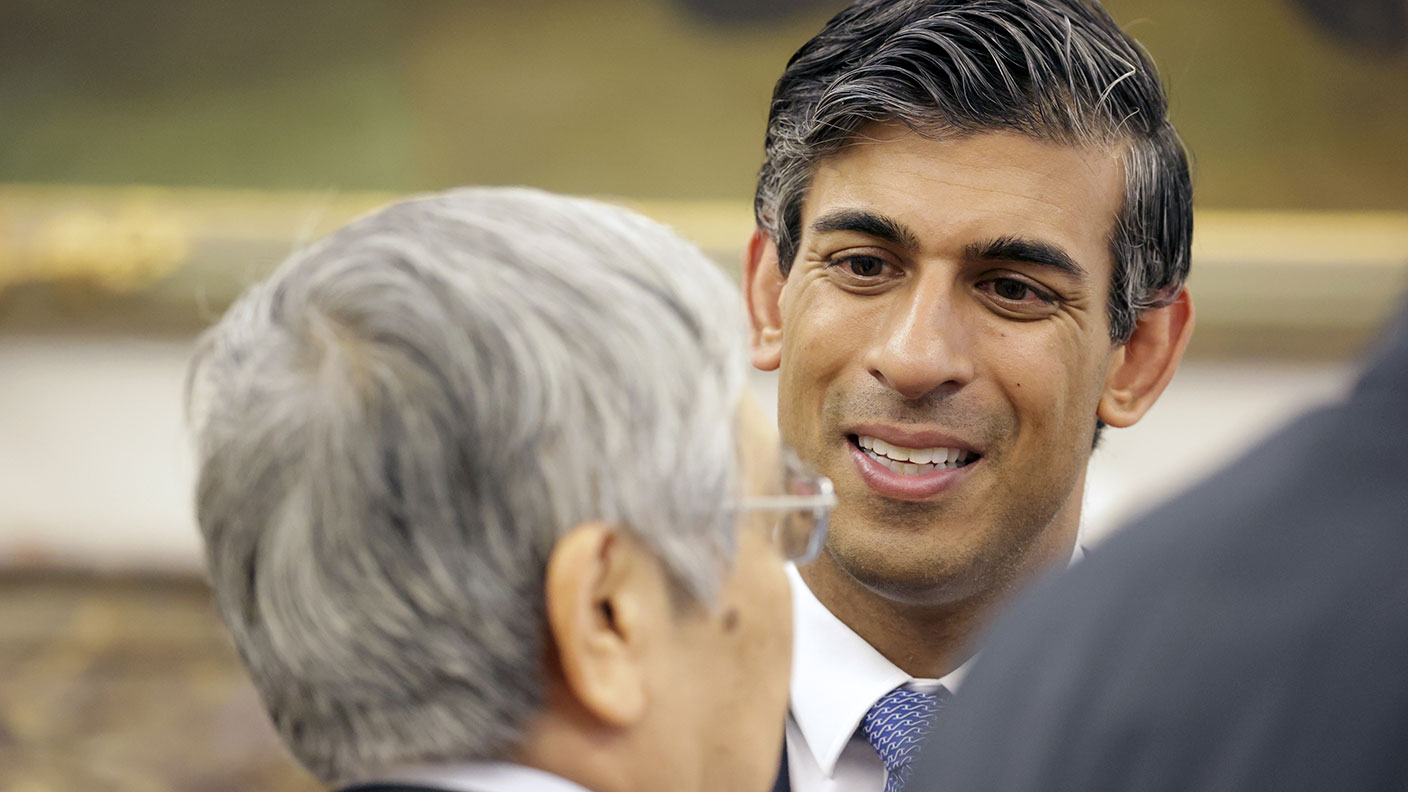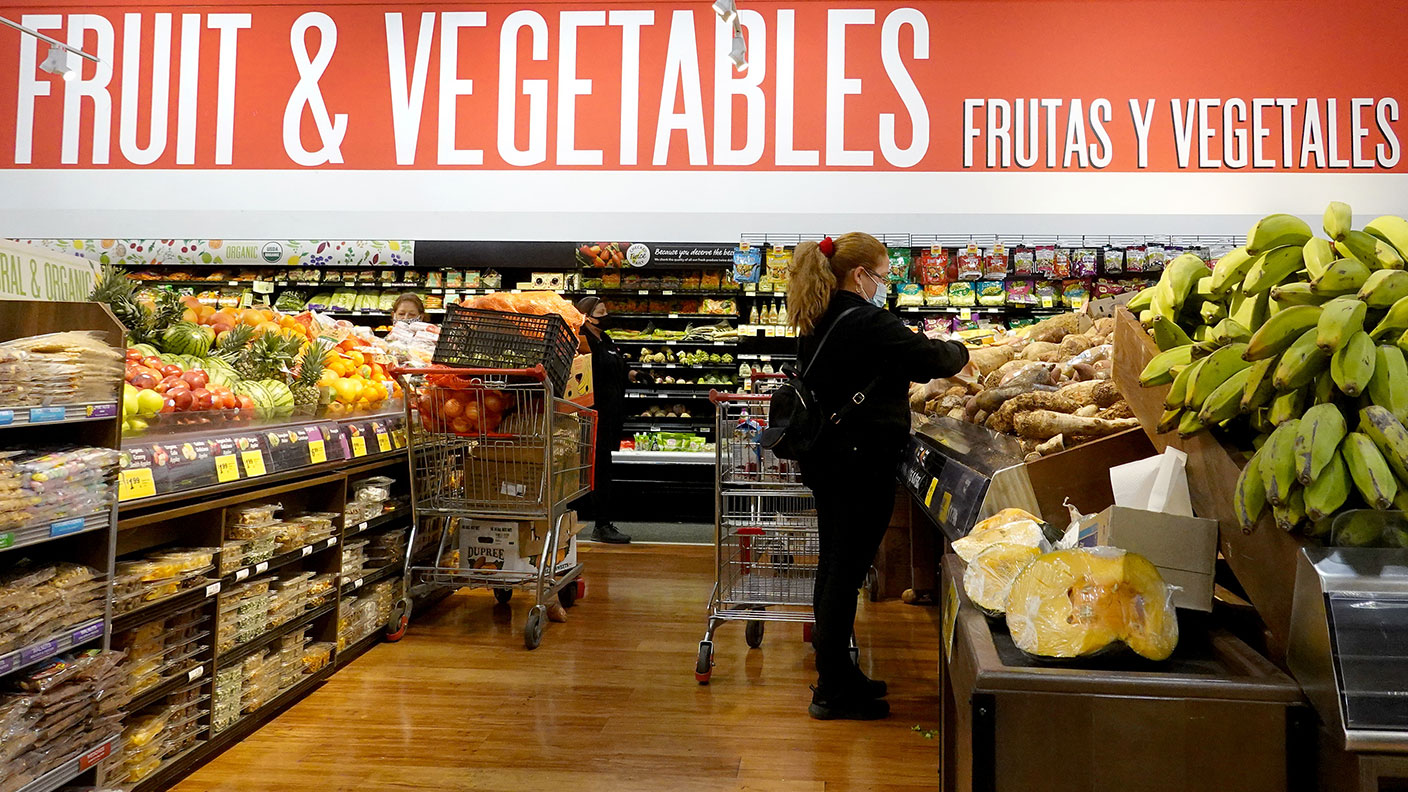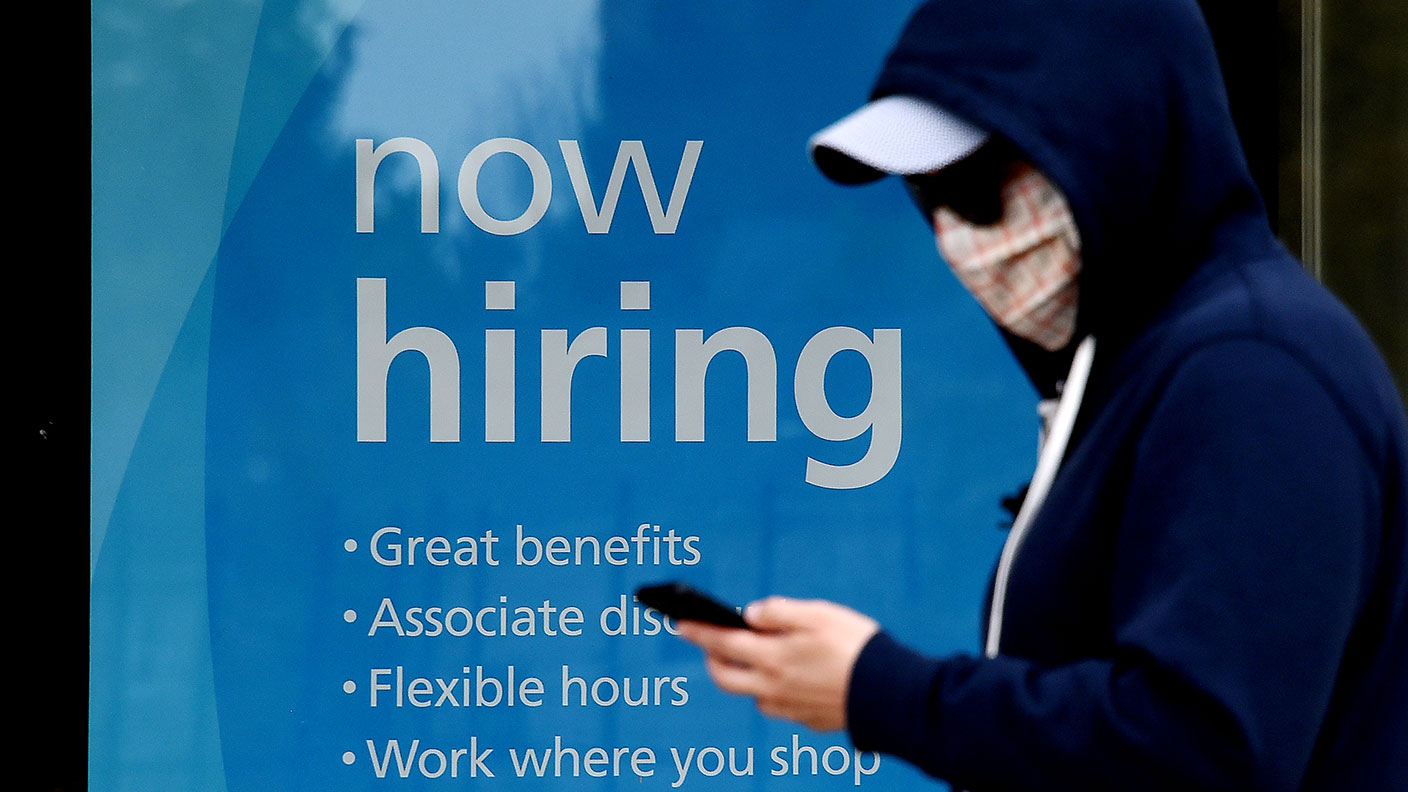How Christine Lagarde’s drive for ever-closer union will affect your wallet
Christine Lagarde, the new head of the European Central Bank, has made it clear she will bankroll the EU’s push for “ever closer union”. John Stepek explains what that means for your money.

Get the latest financial news, insights and expert analysis from our award-winning MoneyWeek team, to help you understand what really matters when it comes to your finances.
You are now subscribed
Your newsletter sign-up was successful
Want to add more newsletters?

Twice daily
MoneyWeek
Get the latest financial news, insights and expert analysis from our award-winning MoneyWeek team, to help you understand what really matters when it comes to your finances.

Four times a week
Look After My Bills
Sign up to our free money-saving newsletter, filled with the latest news and expert advice to help you find the best tips and deals for managing your bills. Start saving today!

Just back in the office this morning after a fantastic day at the MoneyWeek Wealth Summit on Friday. Merryn and I both agreed it was the best we've done yet. If you made it along, I hope you enjoyed it and it was nice to get to speak to so many readers in person. If you didn't make it along, don't despair we're already putting together plans for next year. Watch this space.
Now back to today. While we were all off at the summit on Friday, someone else was taking to the stage in Brussels. One Christine Lagarde. And her speech gives us a pretty good idea of what's coming next in the eurozone...
"The sovereigntists have lost"
Christine Lagarde has taken over from Mario Draghi at the European Central Bank (ECB).
MoneyWeek
Subscribe to MoneyWeek today and get your first six magazine issues absolutely FREE

Sign up to Money Morning
Don't miss the latest investment and personal finances news, market analysis, plus money-saving tips with our free twice-daily newsletter
Don't miss the latest investment and personal finances news, market analysis, plus money-saving tips with our free twice-daily newsletter
Lagarde is not a central banker by vocation or by background. But she doesn't need to be. Because that's not going to be her job at the ECB. And that's something she made clear with this speech.
During his time at the helm, Draghi managed to push the ECB towards being more like a "normal" central bank, despite resistance. In effect, he created a central bank that is capable of underpinning the eurozone financial system in the same way that the US Federal Reserve or the Bank of England or the Bank of Japan can underpin their financial systems. That is, by printing money.
That was the outcome of the Greek crisis. Greece was crushed by deflation; that was the sacrifice that the Greek people made that was demanded of them to stay in the euro. But in the meantime, terror of the whole house of cards collapsing meant that Draghi was simultaneously given a green light to "do what it takes".
That's what he did. And as far as he's concerned, he did enough. As Russell Napier pointed out to us all at the MoneyWeek conference on Friday, when Draghi gave his valedictory (and somewhat self-congratulatory) interview to the Financial Times, he was paraphrased as saying that "the sovereigntists have lost".
Quite the declaration of confidence.
But Draghi's creation of a genuinely eurozone-wide central bank was just the first step. There's a creeping realisation stronger in some nations than others that sharing a currency means giving up political power. Now it's Lagarde's turn to push that further, towards ever-closer political union.
She's not a central banker, she's a politician. And under her, you can expect the ECB to become even more political than it is now. In her first speech, she told governments that it's time to get spending. Monetary policy "cannot and should not be the only game in town."
In effect, she's pushing harder on the door that Draghi already opened the ECB is here, it's printing money, and it will continue to buy all the bonds you can issue in order to fund more government spending. Meanwhile, progress towards "ever closer union" will continue.
As Helen Thomas of Blonde Money succinctly puts it, "Draghi effected political change but cloaked it under economics. Lagarde is going to do more, and in plain sight".
One asset that is probably set to earn its place in your portfolio
So what does that all mean for your money?
The first question of course is: will Lagarde succeed? The answer is that I suspect she will. Brexit has made the federalist movement within the eurozone far less shy of admitting exactly what it wants a Europe that is bound much more closely together than currently is the case.
To get there politically, what's ultimately needed is a much softer currency. That's how you tame the unrest in the less fiscally responsible countries (of whom France is the de facto leader). To do that, you need to get past objections from the more fiscally responsible countries (Germany, basically).
But the objections on that front are being steadily chipped away. And the beauty of Brexit for the Lagardes of this world, is that it enables a false polarisation of attitudes if you're not fully on board with further integration, you might as well be a continental Brexiteer, and there's nothing in between.
What is the knock-on effect? Once German resistance is worn down (which may take a while), you get money printing in the eurozone. And when you've got all governments across the globe committing to spending more or at the very least, under great pressure to do so the obvious asset to own is gold.
As Bridgewater's Ray Dalio reminded us all recently, "gold is the only asset you can have that's not somebody else's liability."
We've discussed the purpose gold serves in your portfolio here several times and it came up again regularly at the conference on Friday. But if you're looking for more on the hows and whys of buying it, then have a read here.
Get the latest financial news, insights and expert analysis from our award-winning MoneyWeek team, to help you understand what really matters when it comes to your finances.

-
 Should you buy an active ETF?
Should you buy an active ETF?ETFs are often mischaracterised as passive products, but they can be a convenient way to add active management to your portfolio
-
 Power up your pension before 5 April – easy ways to save before the tax year end
Power up your pension before 5 April – easy ways to save before the tax year endWith the end of the tax year looming, pension savers currently have a window to review and maximise what’s going into their retirement funds – we look at how
-
 Is the US in recession and does it matter?
Is the US in recession and does it matter?Analysis There's a heated debate over whether the US is in recession or not. But why does it matter? John Stepek explains
-
 Has the chancellor done enough to save the UK from recession?
Has the chancellor done enough to save the UK from recession?Analysis UK Chancellor Rishi Sunak announced a new package last week to ease the cost of living crisis. John Stepek explains whether the risk of a UK recession still remains.
-
 Is the UK too open to overseas takeovers?
Is the UK too open to overseas takeovers?Analysis Data shows that the UK is more open to overseas takeovers than other major markets. John Stepek asks: should investors care?
-
 How to manage your money as inflation just keeps rising
How to manage your money as inflation just keeps risingAnalysis Uk inflation is at a 30-year high – and it won't be falling any time soon. So what can you do? John Stepek explains how to manage your money to combat rising prices.
-
 Inflation is going to stay even higher for even longer
Inflation is going to stay even higher for even longerAnalysis Commodity prices – everything from energy to food – are going through the roof. And that’s not likely to end any time soon, says John Stepek. Here's what that means for how you invest.
-
 Inflation is incredibly inconvenient, as we’re all about to learn
Inflation is incredibly inconvenient, as we’re all about to learnAnalysis Inflation doesn't just eat into your wealth, it eats into your time – and can be devastating for those on the lowest incomes. And it's not going away any time soon, says John Stepek. Here's how to invest.
-
 The cost of living crisis is global – US inflation just hit another 40-year high
The cost of living crisis is global – US inflation just hit another 40-year highAnalysis With US inflation running at 7.5%, it’s clear that the cost of living crisis is not confined to the UK. John Stepek looks at the likely reaction from governments and central banks, and what it means for you.
-
 The strong US jobs report is good news for the economy, but not so much for markets
The strong US jobs report is good news for the economy, but not so much for marketsAnalysis January's US jobs report came in much stronger than anyone was expecting, with 467,000 new jobs added to the economy. But things might not be quite as rosy as they seem, says John Stepek. Here's why.